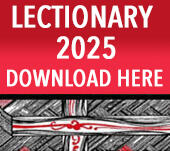The Anglican Church in Aotearoa, New Zealand and Polynesia has decided to broaden its conversation on confirmation after changes to the rites of baptism and confirmation were let lie on the table at General Synod/Te Hīnota Whānui in May.
The bill presented to synod proposed new formularies for the baptism of adults, baptism of children, and a new rite that would replace confirmation, to be known as The Laying on of Hands for Affirmation, Renewal and Reception.
The proposed formularies came in response to local research that outlines how confirmation has lost its pivotal role for many Anglican churches in Aotearoa New Zealand.
An accompanying report explains how the change in understanding and status of confirmation has mainly occurred since baptism became the sole rite required for Christians to receive communion in Anglican churches, going back as far as the 1970s.
Rev Michael Wallace (Dunedin) thanked Assistant Bishop of Auckland Jim White, who had completed the research on behalf of the house of bishops, but asked for a response that did not unnecessarily break with tradition,
“This work on confirmation has identified a crisis in our church,” he said.
“But I believe the crisis is not with the rite of confirmation itself, but with our church’s approach to catechesis and formation.”
Bishop Apimeleki Qiliho agreed on behalf of Tikanga Polynesia,
“It is the teaching behind confirmation that helps candidates to live out their baptism,” he said.
The Anglican Schools Director, Rev Anne van Gend, opposed any shift from confirmation.
Joined by Kim Duxfield, chaplain of Nga Tawa Diocesan School, Ms van Gend asked for school chaplains to be invited into the conversation before any change went ahead.
She also reminded synod that school chaplains are responsible for the largest number of confirmation candidates throughout the church.
“Confirmation is an important rite of passage for our students,” she said.
“And I am loathe to see anything that would weaken that.”
Te Aute College Trustee Maui Tangohau also favoured keeping confirmation as is.
“One reason parents send their children to Te Aute or Hukarere (Māori Anglican Colleges), is to maintain their Anglican faith,” he said.
“When you leave these schools, you will be baptised or confirmed or both.
“And that is valued.”
Rev Jay Behan reported Christchurch diocesan synod heard many voices in support of confirmation, while the Bishop of Waikato Helen-Ann Hartley spoke of the rite’s long-standing, worldwide role.
“I would hate to see it go,” she said.
“There are deep historic and pastoral aspects to confirmation.”
Bishop Jim White replied there was little in the concerns and questions that suggested a present-day rationale for confirmation.
“’That is our tradition’ is not sufficient answer, nor that ‘it is in the Book of Common Prayer’,” he said.
“We have jettisoned other parts of the Book of Common Prayer.
“We no longer hold to the same view (or doctrine) on baptism and that is key.
“There is nothing to ‘confirm’.”
He also said speakers had confused failures or successes in catechesis with confirmation.
“We must improve our catechesis, but that is separate and distinct from the use of an archaic rite.”
He finished with a challenge: “I hope that hui amorangi and dioceses will engage in the substantive matters set out in the report on baptism and confirmation and respond to the Common Life Liturgical Committee over the next two years.”

















Comments
Log in or create a user account to comment.